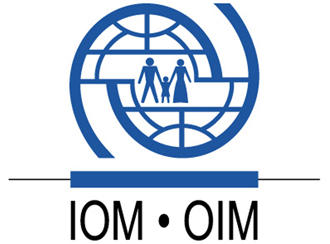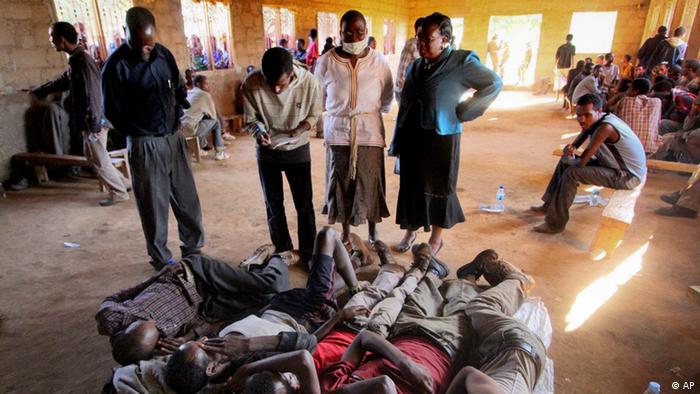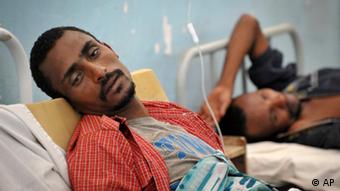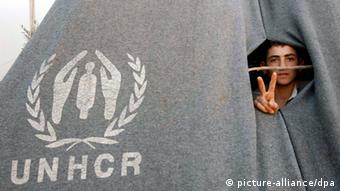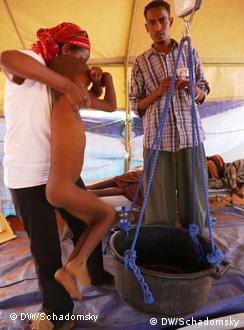08 04 13
የኢትዮጵያዉያን ሥደተኞች ሥቃይ-ሰቆቃ፥ ለዓለም አቀፍ የመብት ተሟጋቾ ድርጅቶች፥ ለርዳታ ሰጪ ተቋማትም ያለፍ አገደም ርዕሥ ነዉ።ለጋዜጠኞች በተለይም ለትላልቆቹ መገናኛ ዘዴዎች እንደ ሊቢያዉ ጦርነት የሐያሉን ዓለም ትኩረት ካልሳበ ከቁብ የሚገባ አይደለም።የደራሲዎች ብዕር፥ የፊልም አንሺዎች ካሜራ ቃኝቶታል፥ ግን ከወግ ማጣፈጪያነት አላለፈም።ለነሱ የዕለት ከዕለት ጩከት፥ ሥቃይ፥ ሲከፋም ሞት ነዉ።ሰሚ ያጣዉን የደካሞች ተደጋጋሚ፥ ደማቅ ጩኸት ላፍታ ዳግም እንስማ።አብራችሁኝ ቆዩ።
ዓለም፥ ሥለ ፍትሕ፥ ዲሞክራሲ፥ ሥለ ሰዉ እኩልነት፥ ሥለ መብት ነፃነት፥ ሥለ ሥደተኞች፥ ሥለ ጋዜጠኞች፥ ሥለ ሴቶች፥ ሥለ ሥደተኞች ሌላ ቀርቶ ሥለ ዉሻ-ድመቶች፥ ሥለ አሕያ-ፈረሰች፥ ደሕንነት የሚሟገቱ ዕልፍ-አዕላፍ ድርጅት፥ ተቋማት አሏት።
የኢትዮጵያዊቷ የቤት-ሠራተኛ ሸዋዬ ሞላ ሊቢያ ዉስጥ የተፈፀመባት ግፍ ከዓለም ጆሮ የደረሰዉ ግን ቀጣሪ፥ ደብዳቢ፥ ገራፊ፥ አሰቃይዎቿ ከዓለም ሐያላን ጋር ሲጋጩ እንጂ ዓለም የብዙ ጉዳይ ተከራካሪ ብዙ ድርጅት ተቋማት ሥላሏት አልነበረም።አሁንም የሐኒባል ቃዛፊ ባለቤት ኢትዮጵያዊቷን በማሰር፥ መደብደቧ፥ በፈላ ዉሐ ወይም ዘይት በማንጨርጨሯ በሕግ የጠየቀታት አካል ሥለመኖር አለመኖሩ እስካሁን የምናዉቀዉ የለም።
ያኔ ግን ምዕራባዉያን ያዘመቱት ጦር የኮሎኔል ሙዓመር ቃዛፊን ሥርዓት ማፍረሱ፥ቃዛፊና ታማኞቻቸዉን መግደሉ ለሸዋዬ የሥቃይ፥ ሰቆቃዋ መቃለል-ሰበብ፥ ከሞት ደጃፍ የመመለ- ምክንያት፥ ብሥራትም ጭምር ነበር።ሊቢያ የዘመተዉን የአሜሪካ-አዉሮጶችን ጦር አጅበዉ የዘመቱት የሐያል-ሐብታሙ ዓለም፥ ጋዜጠኞች ጉዳያቸዉ ባያደርጉት ኖሮ በሸዋዬ ላይ የተዋለዉን ግፍ ጉዳዬ የሚለዉ መገኘቱ ሲበዛ አጠራጣሪ ነበር።
ከቢቢሲ እስከ አል-ጀዚራ፥ ከሲኤን ኤን እስከ ፍራንስ 24፥ ከሮይተርስ እስከ አዣንስፍራንስ ፕረስ፥ ዓለም ሊቢያና ሊቢያ ብቻ የሆነች ያክል የቀድሞ ገዢዎችን ምግባር ከመኝታ አልጋቸዉ-እስከ መዝናኛ መጠጣቸዉ ሲነግሩን በኢትዮጵያዊቷ ላይ የተፈፀመዉን ግፍ ለየዘገባ ማዳመቂያቸዉ በመጠቀማቸዉ ቀጠሮች ዶላራቸዉን፥ የሞልታ ፖለቲከኞች የመኖሪያ ፍቃድ፥ሐኪም፥ ጠበቆቻቸዉን ይዘዉ ደረሱላት።
ጥቅምት ሁለት ሺሕ አራት እንደነገረችን።ሸዋዬ አስጠጊ፥ አካሚ፥ ተንከባካቢ፥ በማግኘቷ ዜና የተደሰተዉ ኢትዮጵያዊ፥ ለደስታ-እፎይታዉ ደርዝ ሳያበጅለት፥ የሊቢያዉን ጦርነት ሽሽት ወደ አዉሮጳ ለመሻገር ሲሞክሩ ሜድትራኒያን ባሕር ለሰመጡ ወገኖቹ ለቅሶ መቀመጥ ነበረበት።
የኢትዮጵያ፥የኤርትራ፥ የሶማሊያ ይሁን የሌላ አፍሪቃዊ ሐገር ስደተኛ ሰጥሞ መሞቱ፥በያኔዎቹ የሊቢያ አማፂያን መገደል፥ መገረፍ፥ መሰቃየቱ የግዙፎቹን የዓለም መገናኛ ዘዴዎች የዜናነት ሚዛን የሚደፋ ሥላልነበረ ችግረኞቹን የሚረዳ ቀርቶ፥ ችግራቸዉን የሰማ-ያወቀዉም ጥቂት ነዉ።
ሸዋዬን ሞልታ መግባቷ በተሰማ ሰሞን ወደ ማላዊ ይጓዝ በነበረ የጭነት መኪና የብረት ሰንዱቅ ኮንቴነር ዉስጥ ታጭቀዉ ከነበሩ ኢትዮጵያዉያን ስደተኞች የአርባ-አምስቱ አስከሬን መራገፉን ከብላንታየር ሰምተን ነበር።
በአዉሮፕላን ወይም ባሕር፥ ሐይቅ፥ በረሐዉን አቋርጠዉ ከሊባኖስ እስከ ስዑዲ አረቢያ፥ በደረሱ ኢትዮጵያዉያን በጣሙን በሴት የቤት ሠራተኞች ላይ እንደሸዋዬ በፈላ ዉሐ-መቀቀል፥ አንዳዴ መሰየፍ፥ መታሰር፥ መደፈር፥ አነስ ሲል ከሥራ መባረር፥ ደሞዝ፥ መኖሪያ ፍቃድ መከልከልም የመን የሚገኙት ኢትዮጵያዊት ባለፈዉ ሳምንት እንደነገሩን ብዙ ጊዜ ሰማነዉ።
የእሱን አላማ ፍላጎት፥- ሥራ-ፍለጋ፥ እስራት፥ እንግልትን ሽሽት ብለን መገመት እንችል ይሆናል። ትክክለኛ ምክንያቱን ቀርቶ ሥም-አድራሻዉንም አናዉቅም።ግን አብሮት የነበረዉ ኤርትራዊ ብጤዉ ለአምንስቲ ኢንተርናሽናል እንደተናገረዉ አጋቾች በረሐ ላይ አስቀሩት።
ከሱዳን ወደ እስራኤል ሲጓዝ ወይም ገና ሱዳን ዉስጥ እያለ ሊሆን ይችላል።እሱንና የሱን ታሪክ የተናገረዉን ኤርትራዊ ከሎች ብጤዎቻቸዉ ጋር ታጣቂዎች አገቷቸዉ። ለየዘመድ-ወዳጆቻቸዉ ደዉለዉ ገንዘብ እንዲከፍሉ ጠየቋቸዉ።ያለዉ እያስላከ ሲከፍል፥ የሌለዉን አጋቾቹ ይደበድቡ፥ ይደፍሩት ገቡ።ኢትዮጵያዊዉ ዱላ መደፈሩን መቋቋም አቅቶት ሞተ።
«ከሞተ በሕዋላ አስከሬኑን እኛን ባሰሩበት ክፍል ዉስጥ ተዉት፥ አስከሬኑ ከበሰበሰ በሕዋላ ትላትሎች ሲወሩት አዉጥተዉ እንድጥለዉ አስገደዱን» ይላል ትረፍ ያለዉ ኤርትራዊ።በዓለም አቀፉ የመብት ተሟጋች ድርጅት በአምንስቲ ኢንተርናሽናል የኢትዮጵያና የኤርትራ ጉዳይ አጥኚ ክሌር ቤስተን እንደሚሉት ወደ ሱዳን በተሰደዱ ኤርትራዉንና ኢትዮጵያዉያን ላይ አዲሱ አይነት ግፍ መፈፀሙን ድርጅታቸዉ ከሰማ ሁለት ዓመግድም ሆነዉ።
«በተለይ ምሥራቃዊ ሱዳን ከሚገኘዉ ከሻግሬብ መጠለያ ጣቢያ ሥደተኞች እየታገቱ ወደ ግብፁ የሲናይ በረሐ መወሰዳቸዉንና የሚፈፀምባቸዉን ግፍ የሚገልፅ ዘገባ ለኛ መድረስ ከጀመረ ሁለት ዓመት ግድም ሆኖታል።የታጋቾቹ ቤተ-ሠቦች፥ ዘመድ ወዳጃቸዉን ለማስለቀቅ ገንዘብ እስኪልኩ ድረስ ወይም ጨርሶ ካላኩ አጋቾቹ ታጋቾቹን ያሰቃዩቸዋል።ይደበድቧቸዋል። ጋዝ እያርከፈከፉ ያቃጥሏቸዋል።በኤሌክትሪክ ንዝረት ያሰቃዩቸዋል።ወንዶችንም ሴቶችንም ይደፍሯቸዋል።የታጋቾቹን ሕይወት ለማዳን ቤተ-ሰባቸዉ ከሰላሳ-እስከ አርባ ሺሕ ዶላር መላክ አለበት።»
በምሥራቅ በኩልም ኢትዮጵያዊ ይሰደዳል።የኢትዮጵያን፥ የጅቡቲን፥ የሶማሊያን በረሐ፥በየበረሐዉ የሸመቁ ዘራፊ ታጣቂዎችን አልፎ፥ የባሕር ማዕበሉን አምልጦ የመን ሲደርስ «እሰዬዉ» ባሰኘ ነበር።ይሕ ግን ድሮ ቀረ ነዉ-የሚባል ነዉ።አሁንም።
የየመን በረሐን-ተሻግሮ ሳዑዲ አረቢያ ወይም ሌሎች የፋርስ በሕረ-ሠላጤ አካባቢ ሐገራት ከገባ ደግሞ አሮጌዉን ወይም የተለመደዉን አይነት ግፍ መጋፈጥ በርግጥ ግድ ነበረበት።ወይዘሮ ቤስተን ከሁለት ዓመት ወዲሕ ያሉትን ዓይነት ግፍም ዛሬ ለሚያዩ-ስደተኞች፥ ለሚሰሙታዛቢዎችም ያ-የድሮዉ ዓይነት ግፍ ለብዙዎች ሥቃይ-ሰቆቃነቱ ቀርቶ እንደ ጥሩ የሚታይ ነዉ።እሳቸዉ ሰነዓ ሆነዉ-ያዩ የሰሙትን ለመናገር ይከብዳቸዋል።
እሱ ግፉን ኖሮታል።
ጋዜጠኛዉ አይቶታል።
በኢትዮጵያ የዓለም የሥደተኞች ድርጅት (IOM) የመገናኛ ወይም የኮሙኒኬሽን ባለሙያ አቶ ደምሰዉ ብዙ ወርቅ እንደነገሩን ድርጅታቸዉ በስደተኞቹ ላይ የሚፈፀመዉን ግፍ ያዉቀዋል።አምንስቲ ኢንተርናሽናልም ያዉቀዋል።የተባበሩት መንግሥታት የስደተኞች መርጃ ኮሚሽነር UNHCRም ያዉቀዋል።ግን፥-ስደተኞቹ ይናገራሉ።
ዮርዳኖስ፥ ቱርክ እና ኢራቅ ለተሰደዱ ያዉም በየመጠለያዉ ጣቢያ ለሠፈሩ፥ የሶሪያ ተወላጆች መርጃ የአረብና የምዕራብ መንግሥት ከአንድ ቢሊዮን በላይ ዶላር ማዋጣታቸዉን ከሰማን ሰወስት ወር አልሞላዉም።ኢትዮጵያዉያኑ ስደተኞች ተመጣጣኝ ምግብ ቢጠይቁ ሊወቀሱ አይገባም።ግን አልጠየቁም።በክረምት ማሞቂያ፥ በበጋዉ ማቀዝቀዣ ቢያገኙ አይጠሉም። ግን አልጠየቁም።የጠየቁት ከሞት፥ ከሥቃይ አድኑን ነዉ።በመደብደብ፥ መሰቃየታቸዉ የቆሰሉት ሕክምና ነዉ።ይሕ ቢቀር ወደ ሐገራችን መልሱን ነዉ።
የIOM ባልደረባ እንደሚሉት ድርጅታቸዉ ለመርዳት የሚያዉለዉ በቂ ገንዘብ የለዉም።ስደተኞቹ እንደገና ይወቅሳሉ።መንግሥትን፥-
የኢትዮጵያ ዉጪ ጉዳይ ሚንስቴር ባለሥልጣናትን ለማነጋገር ሥልክ ደዉለን ነበር።«ይመለከታቸዋል» የተባሉ ባለሥልጣናትን ግን ልናገኝ አልቻልንም።ሥደተኞቹ ይወቅሳሉ።ኢትዮጵያዉያንን፥ከሁለት ዓመት በፊት ከኢትዮጵያ የሚሰደደዉ ወጣት ቁጥር በዓመት ከሐምሳ-እስከ ሥልሳ ሺሕ ይገመት ነበር።የሚፈፀመዉ ግፍ በሚሰቀጥጥ፥ በሚያስቆጭ፥ በሚቀፍበት ባሁኑ ወቅት በዓመት የሚሰደደዉ ኢትዮጵያዊ ወጣት ቁጥር ወደየመን ብቻ ከመቶ ሺሕ በልጧል።እና ስደቱም፥ ግፉም ብሷል። የስደተኛዉ የድረሱልኝ ጩኸትም አላባራም።ግን እስካሁን እንደ ሶሪያ፥ እንደ ሊቢያ፥ እንደ ኢራቆች የዓለም ዘዋሪ መንግሥታትን ቀርቶ የመገናኛ ዘዴዎችን ቀልብ እንኳን አልሳበም።ከወገኞቻቸዉ ጆር ግን ያቃጭላል።አቅም ያለዉ ወገንን ጆሮ ያጣ ሰቅጣጭ ዋይታ።ነጋሽ መሐመድነኝ ቸር ያሰማን።
ነጋሽ መሐመድ
አርያም ተክሌ
